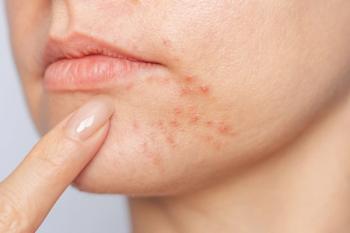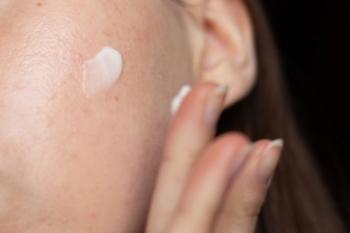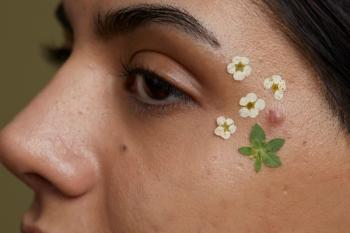
Gel/antibiotic combo rivals ISO in treating severe acne
A Canadian study suggests that Epiduo Gel used in combination with the oral antibiotic doxycycline, compares favorably with oral isotretinoin in the treatment of severe nodular acne. Learn more
A Canadian study suggests that Epiduo Gel (adapalene and benzoyl peroxide, Galderma), used in combination with the oral antibiotic doxycycline, compares favorably with oral isotretinoin (ISO) in the treatment of severe nodular acne.
The research team, led by Jerry Tan, M.D., of the University of Western Ontario, acknowledges that ISO is the gold standard for treating severe nodular acne. They add, however, that because some patients are unwilling or unable to take ISO, alternatives are needed.
Their study was designed to compare the efficacy and safety of oral ISO (0.5 to 1 mg daily) with doxycycline (200 mg daily) plus adapalene 0.1 percent/benzoyl peroxide 2.5 percent gel (D+A/BPO) in treating severe nodular acne over a 20-week span. The multi-center, randomized study involved 266 subjects and, note the authors, was intended to establish the Epiduo-with-doxycycline combination as a reasonable alternative to oral ISO, not to establish superiority.
The researchers found that D+A/BPO showed a significantly earlier onset of action in reducing nodules, papules/pustules and total lesions at week two. ISO, on the other hand, performed better in reducing nodules (95.6 percent vs. 88.7 percent), papules/pustules (95.2 percent vs. 79.6 percent) and total lesions (92.9 percent vs. 78.2 percent) at week 20. Half as many D+A/BPO subjects, as compared with those on ISO, had treatment-related adverse events (33 events in 18 percent of subjects vs. 73 in 33.8 percent of subjects, respectively).
Overall, the authors write, “D+A/BPO showed a favorable composite efficacy/safety profile compared with ISO. This combination is an alternative to ISO in patients intolerant to, or unable or unwilling to take, oral ISO, and is an option for treatment of severe nodular acne.”
Hilary Baldwin, M.D., a Brooklyn, N.Y., dermatologist who’s an acne expert and an associate professor of dermatology at the State University of New York Downstate, tells Dermatology Times that the study design was unique in that it examined both efficacy and tolerability, thus giving it significant clinical relevance.
“Good efficacy with intolerable side effects or an excellent safety profile without good clinical results does not provide us with a functioning treatment protocol,” she says. “The study helps to remind us that an oral antibiotic in combination with quality topical care provides excellent efficacy comparable to isotretinoin, often with more rapid improvement. Therefore, it is a viable alternative to isotretinoin in patients who are not candidates for the drug or who are unwilling, for whatever reason, to take the medication.”
According to officials of Galderma, which commissioned and funded the research, the study is the first to compare the combination of Epiduo Gel and doxycycline to once-daily ISO, and is also one of the few studies comparing ISO to the combination of oral antibiotics and a topical treatment.
The study was published in the British Journal of Dermatology.
Newsletter
Like what you’re reading? Subscribe to Dermatology Times for weekly updates on therapies, innovations, and real-world practice tips.











